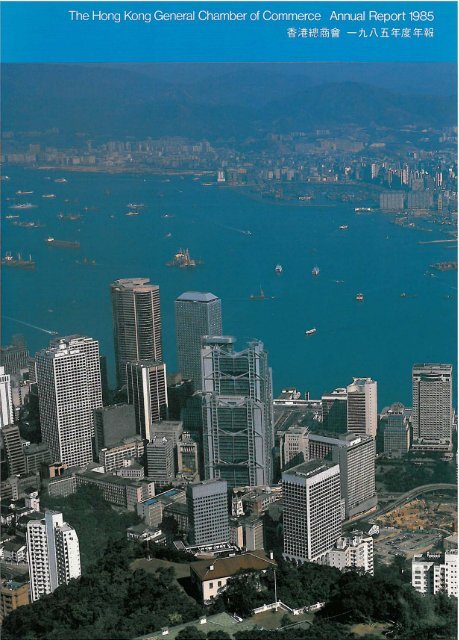In the dynamic business landscape of Hong Kong, small and medium-sized enterprises (SMEs) play a crucial role in driving economic growth and innovation. However, a recent report by QBE Insurance has shed light on significant insurance coverage gaps and workforce trends that SMEs in Hong Kong are grappling with. This blog post aims to provide a comprehensive overview of these issues, highlighting the challenges and opportunities that lie ahead.
According to the QBE Insurance survey, a staggering 65% of Hong Kong’s SMEs lack business interruption coverage, despite the fact that most business leaders are deeply concerned about income loss from business interruptions. Only 24% of SMEs have insurance to cover this risk, which leaves a significant portion of the business community vulnerable to financial setbacks. For instance, a sudden disruption due to a natural disaster or a critical equipment failure can lead to substantial revenue losses and operational delays. This gap in coverage underscores the need for SMEs to reassess their insurance strategies and consider investing in comprehensive business interruption policies to safeguard their financial stability.
Rising property rental prices continue to be the top business concern for Hong Kong’s SMEs, with 67% of respondents citing this issue. The high cost of renting commercial spaces can strain operating budgets and limit the resources available for other critical business functions. This financial pressure is particularly acute for SMEs, which often operate on tighter margins compared to larger corporations. To mitigate this challenge, SMEs may need to explore alternative locations or negotiate more favorable lease terms with property owners.
Another significant concern for SMEs is the risk of losing staff, with 65% of respondents expressing worry about this issue. Similarly, 64% of SMEs are concerned about equipment malfunction, yet only 19% and 25%, respectively, have insurance policies in place to address these risks. The lack of adequate insurance coverage can leave businesses exposed to unexpected costs and operational disruptions. For example, a key employee leaving the company can lead to a loss of critical skills and knowledge, while a malfunctioning piece of equipment can halt production and delay projects. Implementing robust insurance policies can help mitigate these risks and provide a safety net for SMEs.
The survey also highlighted a growing focus on workplace safety and health (WSH) among Hong Kong’s SMEs. Communication of coverage and benefits to employees has increased to 92% in 2025 from 90% last year, indicating a positive trend in transparency and employee engagement. However, the proportion of businesses with return-to-work policies has declined from 86% to 82%, while the number of companies reporting WSH incidents has risen from 22% to 25%. This suggests that while there is a growing awareness of WSH, there is still room for improvement in implementing and maintaining effective policies.
Mental health remains a top priority for Hong Kong’s SMEs, with 95% of respondents recognizing its importance. More companies are taking proactive steps to support employee well-being, such as offering flexible working hours and work-from-home arrangements. These initiatives not only help in retaining skilled workers but also contribute to a more positive and productive work environment. For example, allowing employees to work from home can reduce commuting stress and provide more time for personal activities, leading to better mental health and job satisfaction.
Talent acquisition and retention continue to be major challenges for SMEs, with 50% of respondents identifying it as a key issue. Increasing pay and bonuses has emerged as a primary strategy for retaining skilled workers, with 43% of SMEs prioritizing this approach compared to 29% last year. Flexible work schedules have also gained traction, with 39% of businesses offering them, up from 26%. Other initiatives to enhance employee satisfaction include creating relaxation spaces to support work-life balance. These efforts demonstrate that SMEs are increasingly recognizing the importance of a holistic approach to employee well-being and are willing to invest in strategies that foster a positive work culture.
For the first time, the survey examined attitudes towards older workers, who make up nearly 14% of Hong Kong’s workforce. SMEs remain a significant employer of this demographic, with 49% reporting that at least 10% of their workforce is aged 65 or older. Employers recognize the value of older workers, citing their experience, higher retention rates, and loyalty as key strengths. This highlights the potential benefits of leveraging the skills and knowledge of older workers, who can provide valuable insights and mentorship to younger employees.
In conclusion, the QBE Insurance report provides a valuable snapshot of the insurance coverage gaps and workforce trends affecting Hong Kong’s SMEs. By addressing these challenges and implementing effective strategies, SMEs can enhance their resilience, attract and retain talent, and contribute to the overall economic growth of Hong Kong. As the business landscape continues to evolve, it is essential for SMEs to stay informed and proactive in managing their risks and opportunities.



